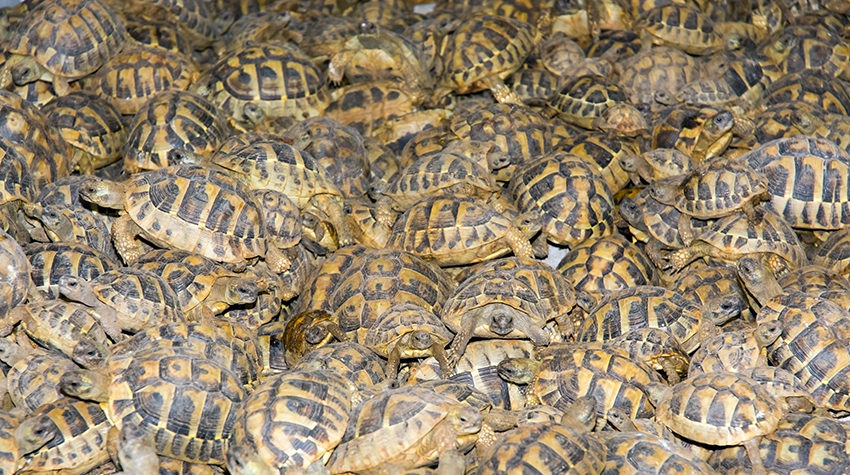
November 17, 2021Animal Law & Policy Clinic, Media ReleaseLawsuit Demands Crucial U.S. Wildlife Trade Data
For Immediate Release: November 17, 2021
Lawsuit Demands Crucial U.S. Wildlife Trade Data
Federally Collected Information Key to Combating Extinction, Pandemics
TUCSON, Ariz.— The Center for Biological Diversity sued the U.S. Fish and Wildlife Service today for failing to release data on wildlife traded across U.S. borders. The United States imports millions of animals, plants and wildlife products each year from around the globe, and these imports are all tracked by the Service.
The agency’s refusal to release the data prompted today’s Freedom of Information Act lawsuit, filed in federal court in Arizona by Harvard Law School’s Animal Law & Policy Clinic, which is representing the Center.
“The government doesn’t have a legal leg to stand on, yet for years it’s refused to disclose key info about the animals, plants and wildlife products flooding across our borders,” said Tanya Sanerib, international legal director at the Center. “Human exploitation of wildlife is a major driver of extinctions. The United States plays an oversized role in wildlife exploitation globally, and it’s time for the Biden administration to release the trade data that will shed light on this problem. It’s unacceptable to keep crucial information for fighting extinction from the public.”
The data — called the LEMIS data because it is generated by the Law Enforcement Management and Information System, or LEMIS — includes basic information such as species’ names, quantity imported, country of origin and importer and exporter names.
The agency freely released the data for decades until it stopped doing so in 2014, prompting two U.S. courts to order disclosure of earlier LEMIS data. That data revealed that the United States is a major importer of wildlife, bringing in an estimated 225 million live animals and 883 million dead specimens annually for the pet trade, décor, fashion, food, research, hunting trophies and more. U.S. exports include substantial fur exports as well as freshwater turtles used for food and traditional medicines.
“The Service’s failure to disclose the LEMIS data violates the Freedom of Information Act and is completely at odds with the public’s right to know which wildlife species are being imported into the United States and whether those imports might present a risk of another pandemic,” said Harvard Law School student Caroline Graif, who is working on the case.
Since 2016 the agency has refused to disclose any more LEMIS data despite the fact that in June of 2021 more than 20 groups asking for the release of these data. Without this information, the public — including conservationists, scientists and journalists — cannot track or fully evaluate how U.S. trade is endangering wildlife at home or abroad.
Given the likely zoonotic origins of the Covid-19 pandemic, understanding how U.S. demand fuels wildlife trade that risks pathogen emergence is critical for preventing future pandemics. A Center report based on previously released LEMIS data revealed that over a five-year period the United States imported almost 23 million whole animals, parts, samples and products made from bats, primates and rodents — animals that harbor 75% of known zoonotic viruses.
Media contacts:
Tanya Sanerib, Center for Biological Diversity, (206) 379-7363, [email protected]
Sarah Pickering, Harvard Law School’s Animal Law & Policy Clinic, (617) 852-6484, [email protected]
###
The Center for Biological Diversity is a national, nonprofit conservation organization with more than 1.7 million members and online activists dedicated to the protection of endangered species and wild places.
The Animal Law & Policy Program at Harvard Law School is committed to analyzing and improving the treatment of animals through the legal system. In 2019, it launched the clinic to provide students with direct hands-on experience in animal advocacy on behalf of both captive animals and wildlife, including litigation, legislation, administrative practice, and policymaking.
